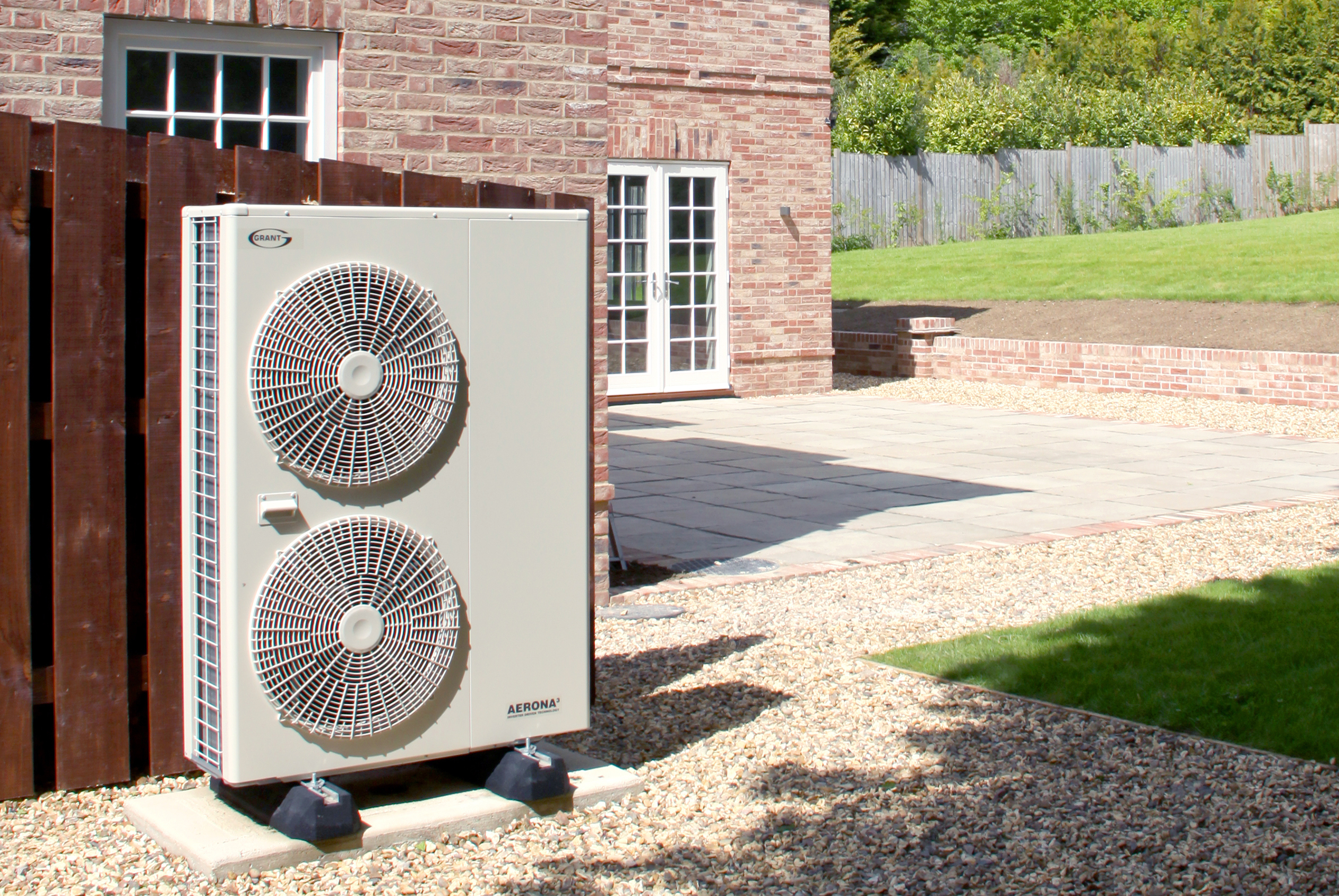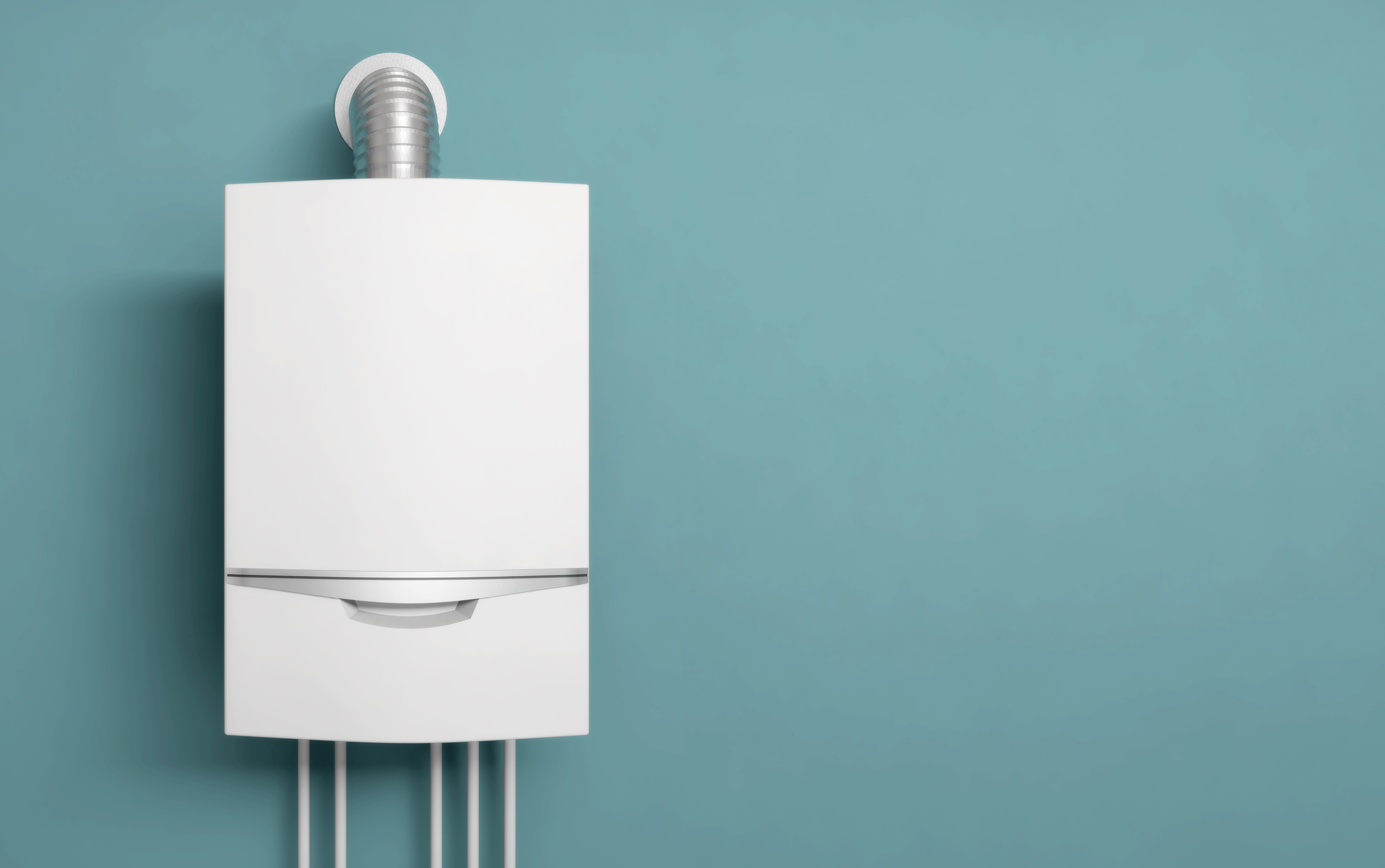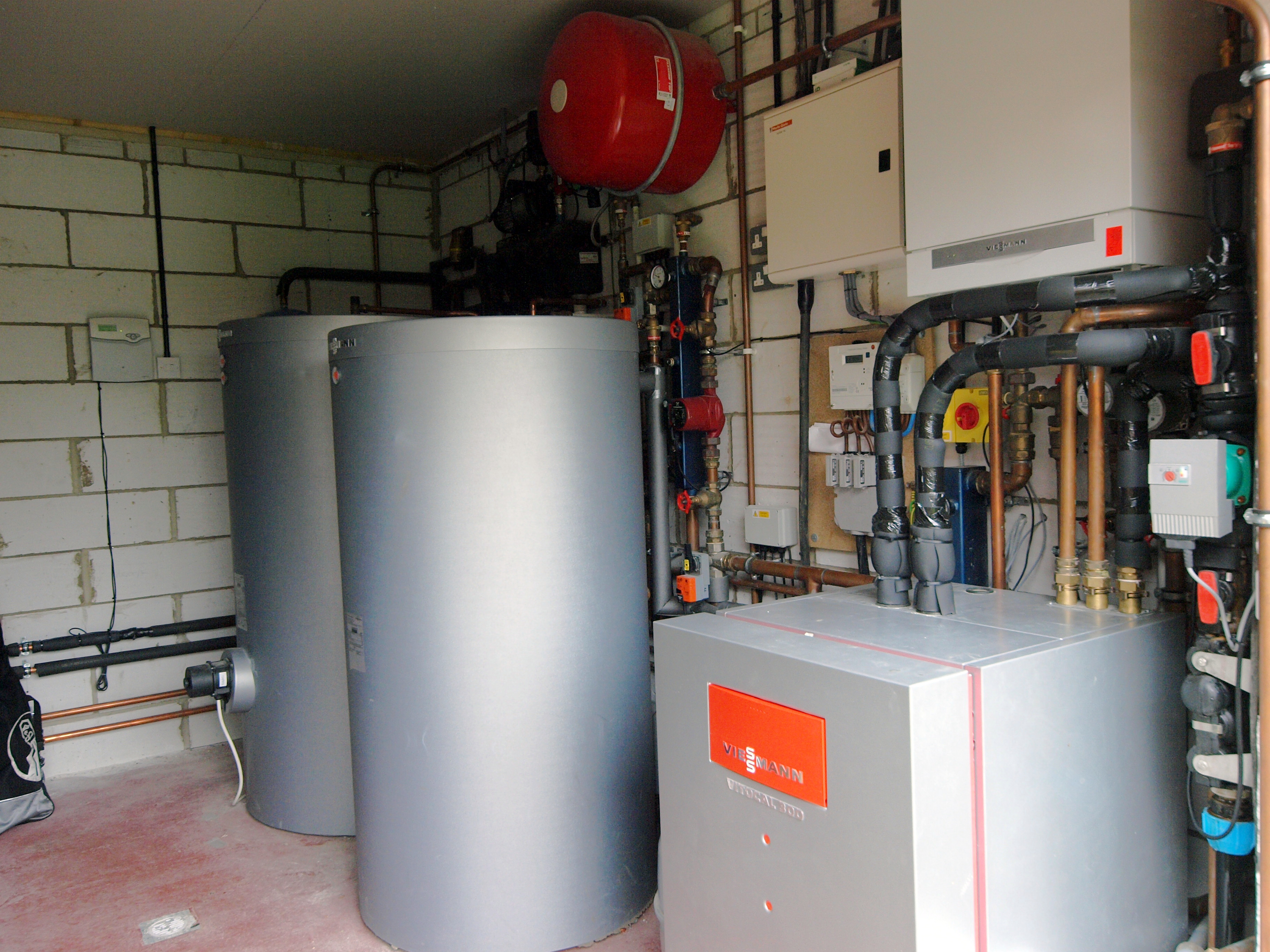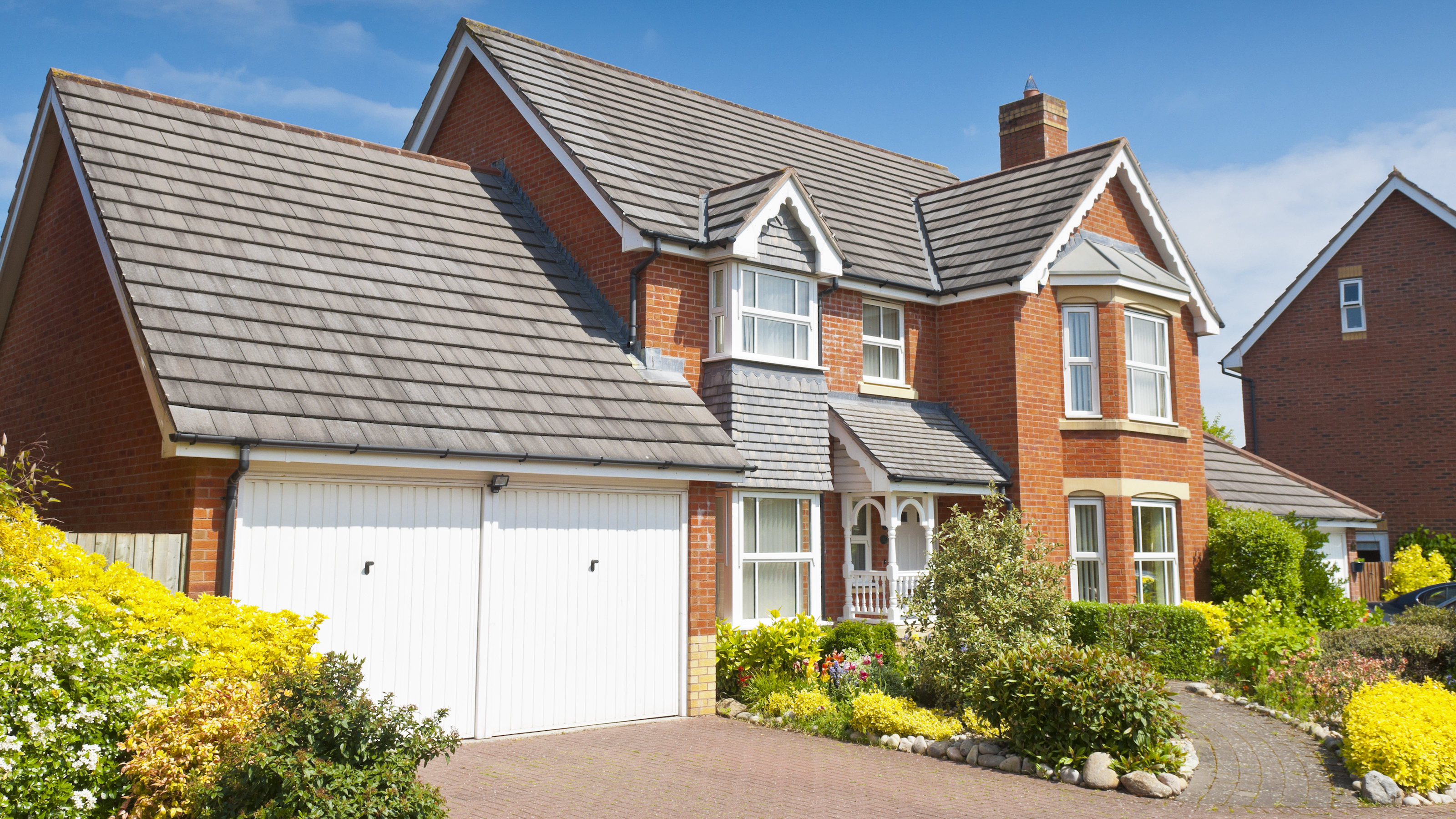Heat pump vs gas boiler: How do they compare?
Trying to decide which is the best option for your home? We delve into the pros and cons of each to help you make the right choice

In the heat pumps vs gas boiler debate, you're looking at very different technologies that are effectively delivering the same result: hot water and central heating. That's pretty much where the similarities end.
With the government heralding both air source heat pumps and ground source heat pumps as the successors to gas boilers as part of its Boiler Upgrade Scheme, it's the right time to be weighing up your options and how these two systems compare.
Here we examine the pros and cons of each so that you can make an informed choice about whether or not to replace your gas boiler with a heat pump, and what you should be thinking about if you are considering making the switch.
Heat pumps vs gas boilers: The key differences

To the homeowner, heat pumps and gas boilers create the same result, but the difference is in the way the two technologies work, meaning that they need to have a different design setup when it comes to how heat is delivered to the property.
While a gas boiler burns gas to heat water, a heat pump operates off electricity, sourcing heat from the external environment, either the ground, as in the case of ground source heat pumps, or from the air in the case of an air source heat pump. The heat is then compressed to increase the temperature and then used to heat water stored in a tank. Other differences include:
- Gas boilers provide heat quickly, usually between 70°C and 80°C, with a simple on/off mechanism and regulation via a thermostat. A boiler can thus work with radiators with a very high temperature
- Heat pumps meanwhile provide a more steady supply of heat of between 35°C and 55°C. The low temperature of the heat pump means that the emitter, for example underfloor heating, ideally needs to have a much larger surface area as well as the home being well insulated
- Heat pumps are generally much more efficient than gas boilers and last five to ten years longer before they need to be replaced. However, they do take much longer to install than gas boilers. For this reason, it is better to install a heat pump in summer than in winter, because the gas boiler will need to be switched off in the interim
- Heat pumps also, currently, tend to be a lot more expensive than gas boilers, although there are grants available from the government, the Boiler Upgrade Scheme for instance, to make them cheaper
1. Efficiency
Heat pumps are much more efficient than gas boilers. Despite the efficiency of boilers having improved to 94% over recent years due to new technology, heat pumps are around 300%-400% efficient, meaning that they will produce 3-4 times more heat than gas boilers for every kilowatt of electricity used by the heat pump.
The efficiency of a heat pump is known as the Coefficient of Performance (CoP) which is the ratio of the amount of electricity used to the amount of heat produced. As an example, if the heat pump uses 1kWh of electricity and produces 3 kWh of heat, then the CoP is 3 or can also be referred to as a 300% efficiency.
Another advantage of air source heat pumps is that they can operate at high efficiency even in colder weather, according to data obtained by the Electrification of Heat Demonstration Project initiated by the Department for Energy Security and Net Zero (DESNZ).
The Electrification of Heat Demonstration Project also found that the median air source heat pump efficiency on the coldest days of the year was 2.44 (244 percent), representing only a minimal decline in efficiency during the colder half of the year.
2. Integration with radiators and UFH
A boiler system may be designed to run at an average flow temperature of 70°C, but the temperature difference between the water going into the radiator and the water coming out of the radiator is 10°C. This in effect means the water goes into the radiator at say 75°C and comes out at 65°C, having given up 10°C.
Gas boilers also work well with underfloor heating (UFH), but newer combi boilers will have to be adjusted slightly with the addition of a two-way valve so that they can run central heating and UFH separately. The boiler will also have to match the size of the UFH system, because if the boiler is underpowered it will take a long time to heat up properly, while an overpowered gas boiler will waste excess energy and increase your household energy bills.
A heat pump system ideally wants to have an average temperature of around 37.5°C and a temperature difference of only 5°C. Therefore the water goes into the UFH or radiator at say 40°C and comes out at 35°C, having given up 5°C.
Ultimately, if you opt for a heat pump rather than a gas boiler, you will need to size the radiators and/or UFH pipe lengths very precisely. You will also need to be able to control the speed of the water in the circuit as well as the delivery of heat to the circuit. The balance is critical and certainly not always possible in older or 'energy hungry' properties.
So, if you ask yourself 'should I swap my gas boiler for a heat pump?', you need to be aware that you'll likely need to update your existing radiators and pipework, as well as your heat source, in an existing home.
3. Installation
Expect to pay around £14,000 for air source heat pump installation costs – not including any grants from the BUS. You're looking at from around £13,000 to £30,000 for ground source heat pump costs, and possibly more if you need a large borehole collector.
Meanwhile, you can expect a standard combi new boiler cost to be between £1,000-£2,000 depending on the make and model. Installation will cost approximately another £1,000, making the cost all-in £2,000 to £3,000 for a simple gas boiler replacement.
4. Running costs
As heat pumps run on electricity and a boiler burns gas, the running cost comparison needs to take into account the unit costs of each fuel. Electricity will cost 24.5p per kWh from October 2024 with a 60.99p standing charge while natural gas will cost 6.24p with a 31.66p standing charge.
This means that on pure financial cost alone, the heat pump would need a CoP between 3 and 5, or in other words, have an efficiency of between 300% to 500%, to be comparable.
But as the cost of electricity and the cost of gas change, as well as improvements to heat pump technology, so will this calculation. You also need to be sure that the system will indeed achieve the indicated efficiencies. One thing is for sure though. The cost of energy will continue to rise and the gap between the cost of electricity and the cost of gas is sure to close.
At the moment the switch from gas to a heat pump may not make financial sense, but as the energy cost gap closes, the numbers will certainly become more favourable for heat pumps.
5. Space

Gas boilers don’t require as much space as heat pumps, especially when it comes to newer combi boilers in contrast to older boilers with a hot water tank. This means that in smaller properties, a combi boiler might be the better option. Installing a ground source heat pump requires outdoor space for a heat loop beneath the ground, or a vertical borehole, while air source heat pumps require at least 3.5 metres of space outside the property and enough space for a hot water cylinder inside the property.
The size of the property is also important. For a property of 100 square metres, you will need a heat pump of at least 5 kilowatts. For a property of 300 square metres, you will need a 16 kilowatt heat pump.
6. Lifespan and replacements
Heat pumps have a long lifespan, usually 20-25 years, whereas the average life of a gas boiler is around 15 years. This is because they have a much simpler design, whereas components in a gas boiler will start to fail after 10-12 years, most likely the compressor, which will burn out over time.
With regard to the advice on how to maintain a heat pump, air source heat pumps require an annual service from a qualified engineer every year in a similar way to your gas boiler.
FAQs
What types of properties are most suitable for heat pumps and for gas boilers?
The slow heat that is required to optimise a heat pump means they are often best suited to a very well insulated building due to the gradual build up of the temperature over a long period of time.
It is generally accepted that a ground source heat pump is better suited to larger properties, while either an air source heat pump or ground source heat pump is suitable for properties under around 300m2.
Boilers are better suited to producing rapid heat in older, less efficient buildings. They can also be designed into systems where they can deliver low temperature heat in a similar way to a heat pump - meaning they can work alongside underfloor heating.
In a self build scenario, Building Regulations is moving towards low temperature emitters, which will be more compatible with heat pump systems.
In an existing home, however, things become a little more challenging. The cost of retrofitting a heat pump into an existing home is comparatively more than working with a new build. You can find out more about which type may be better for you in is my home suitable for a heat pump.
When is the best time to install a heat pump?
The best time to install a heat pump is when your existing heating system, probably a gas boiler, is reaching the end of its useful life. Ideally, you would do this in the summer, because the gas boiler will have to be turned off while the new heating system is being installed. Summer is also the time when the heating industry is less busy, so there will be a greater chance of you being able to book in a heating engineer for exactly the time and date you want the heat pump installed.
Another consideration is the Boiler Upgrade Scheme, which is due to end in 2028. It is therefore worth applying as soon as possible to ensure you don’t miss out on a grant towards the cost of installing the heat pump. There are no such incentive schemes for gas boilers as these are now being phased out.
Can I still buy a gas boiler?
We have recently learned that the target date of when gas boilers will be phased out, known as the gas boiler ban, is 2035, and that the Government will make a decision on the hydrogen strategy by 2026.
If we do indeed see an increase of hydrogen in the gas grid alongside low/zero carbon gas such as synthesis gas or anaerobic digestion, then the boilers won’t be a problem as it is currently the fuel that is carbon intensive rather than the appliance.
Heat pumps are just one gas boiler alternative, there are actually other options that might be worth investigating for your property if you are looking at switching.
Biomass boilers are often looked at for larger properties, while infrared heating and hydrogen-ready boilers might be worth looking at for medium-sized or smaller homes. Solar technology is also improving and hybrid solar panels are probably worth investigating as an alternative heating system for your home too.
Get the Homebuilding & Renovating Newsletter
Bring your dream home to life with expert advice, how to guides and design inspiration. Sign up for our newsletter and get two free tickets to a Homebuilding & Renovating Show near you.
David is a renewables and ventilation installer, with over 35 years experience, and is a long-standing contributor to Homebuilding and Renovating magazine. He is a member of the Gas Safe Register, has a Masters degree in Sustainable Architecture, and is an authority in sustainable building and energy efficiency, with extensive knowledge in building fabrics, heat recovery ventilation, renewables, and also conventional heating systems. He is also a speaker at the Homebuilding & Renovating Show.
Passionate about healthy, efficient homes, he is director of Heat and Energy Ltd. He works with architects, builders, self builders and renovators, and designs and project manages the installation of ventilation and heating systems to achieve the most energy efficient and cost effective outcome for every home.

